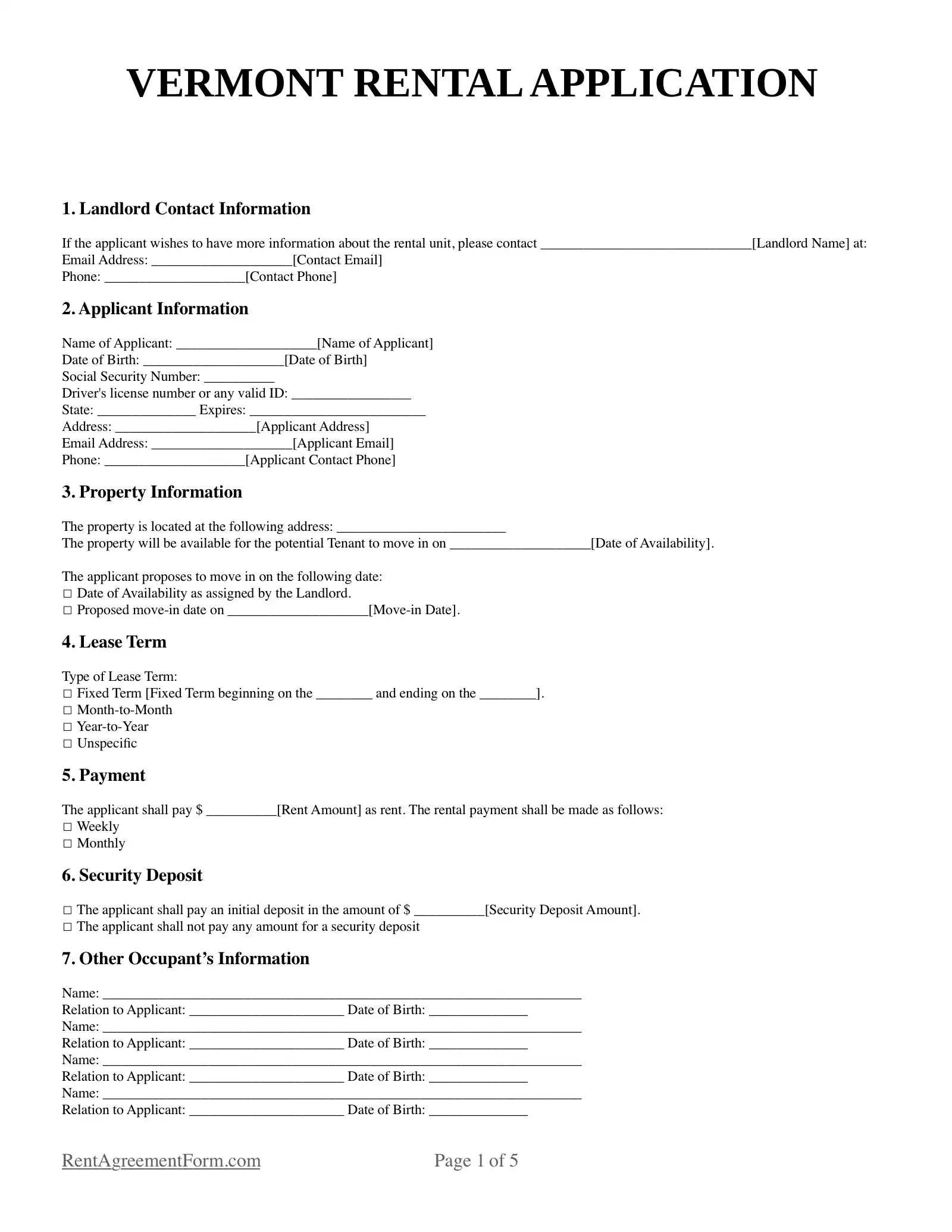Vermont Rental Application Form
If you are looking to rent a property in Vermont, you will need to fill out a rental application form. This form will normally ask for information about your income, employment history, rental history, and references. Landlords may also run an eviction check, evaluate your credit record and criminal history, and request additional background information.
Upon receiving applications from interested tenants, landlords must keep in mind the rental laws and regulations in Vermont, as well as provisions in the Federal Fair Housing Act.
This Act prohibits landlords from discriminating against tenants based on factors such as race, religion, family status, national origin, sex, or disability. Likewise, the law bans prejudice based on gender identity, sexual preference, age, and other similar attributes.

Rental Application Fee
Vermont law allows landlords to charge an application fee that’s used to cover the cost of processing rental applications and conducting background checks. According to Vermont law, the fee must be reasonable and cannot exceed the actual cost of processing the application (9 V.S.A. § 4451-4469a).
As a tenant, it is important to ask about the application fee upfront and make sure you understand the landlord's screening process. Landlords typically use the fee to run credit and eviction checks, as well as verify income and employment history.
If you are concerned about the fee, you can also ask if there are any discounts available for low-income tenants.
Security Deposits
Landlords may also require tenants to provide a security deposit before moving in. The deposit is usually equal to one or two months' rent and is held as collateral to cover any damages or unpaid rent at the end of the lease.
Under Vermont law, landlords must return the deposit within 14 days of the tenant moving out or provide an itemized list of deductions if any portion of the deposit is being withheld.
It is crucial for tenants to carefully document the condition of the property at the start of the lease and notify the landlord of any damages or maintenance issues. This can help avoid disputes over the return of the security deposit at the end of the lease.
Tenants should also be aware that Vermont law limits the amount landlords can charge for a security deposit and prohibits landlords from using the deposit for non-rental purposes (9 V.S.A. § 4461).